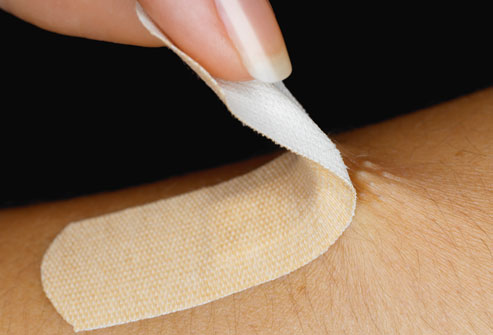This is the warning symbol for explicit details that may bother some people. Turn away now unless your curiosity is stronger than your stomach.
I learned something new about sexual anatomy that changes a few things. The content of this post will touch on a body part connected to people's expectations of intercourse, particularly when it concerns virginity.
Now that I've given enough advance warning, let's delve into it. When you get past the typical High School level Sex Ed, chances are you find out some further details on your own, and in this investigation might learn that 'penis' and 'vagina' are a bit simplistic, there's more going on down there. You might learn about something called the hymen, which the prevailing popular wisdom tends to say is skin that stretches across the walls of the vagina and is broken during first intercourse, resulting in the ubiquitous bleeding that is popularly associated with a woman 'losing her virginity.' I recall that in middle school, the 'vulgar tongue' referred to it as "popping the cherry." Different sources would give you different facts regarding how much blood was expected.
What I found in almost every instance of its description, be it in books, online articles or in casual (very casual) conversation, was that the hymen is supposedly a taut membrane of skin that completely occupies the space somewhere in the vagina, and rips off the vaginal wall, or at least rips straight through the middle, when it is penetrated, either by a penis or a tampon. It never grows back.
This is wrong. Apparently there is a wide misconception about it, but this is anecdotal and I suppose my own experience isn't extensive enough to make this declaration objectively. Nevertheless, because of this misconception, it appears that the "popular wisdom," again, in terms of advice given to males who are having intercourse with a virgin, is to be quick, making sure to break through fast so that the pain doesn't drag out. Much like the notion that ripping off a bandaid quickly hurts less than pulling it off slowly.
Terrible advice, it turns out. In reality, the hymen is not a "single use tissue," but does in fact grow back. That's because it, like the labia majorae/minorae, is not something that just gets in the way and makes female anatomy confusing, it's a functional anatomical feature that, to my best understanding, helps keep the vagina sanitary by limiting dirt and debris or infectious agents from getting inside.
 |
| I wanted an image of filters arranged in a row. The concept is that a little less gets through each step. |
And how does this happen? That's because it isn't completely closed off. You may encounter descriptions that say that it has holes in it. Whatever does this mean? Now it makes sense to me. Because it isn't a taut membrane but a sort of valve, and not an obstacle to tampons, fingers, penises etc, it has the ability to open and close depending on the frequency of sexual activity. Think of it more like one of those circular gates, like a lens cover on some cameras, [edit: a SHUTTER] and which you can see in the opening scene to James Bond movies:
It can open and close. And it does open, and stay that way with sustained intercourse over some time. So the prevailing opinion that guys should thrust real quick because it has to hurt, so get it over with, is misguided and hurts women. The reality is that it's better to go slowly. It doesn't have to be painful. And over a little time it will get to a point where it won't be an obstacle anymore. Patience is romantic, guys.
I understand the idea of waiting doesn't make much sense if the cultural expectation is that you might only be having sex with a girl one time. But then, the whole idea of having sex with someone and being sexually intimate without being emotionally and intellectually intimate, and having a commitment that creates a basis for the physical ecstasy to be much more enjoyable and satisfying, doesn't make much sense, either.
This concludes the anatomy lesson. Let's hope it helps at least one couple, somewhere.
~ Rak Chazak

_Large.jpg)


hmmm....i see...I've been crazed about this for sometime...Thanks
ReplyDelete